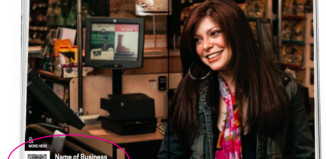What do you really know about the food you’re feeding your pets? The answer is probably “not much.” Sure, that bag of bites you pick up at the grocery store or the vet’s office has a picture of chicken and barley or maybe fish on the label, but chances are you haven’t actually analyzed the ingredients.
More people today are looking carefully at the foods they themselves eat, steering clear of preservatives and buying organic. But a lot of pet owners have a blind trust when it comes to pet foods.
A new Austin-based pet food company is looking to change that and shake up the status quo in the pet food biz. Just a few months old, Nulo is the brainchild of partners and pet-industry professionals Michael Landa and Brett Montana. And this duo has lofty goals for their company’s future.
“We know we have a strong product, and now it’s a matter of really educating the owners out there,” said Landa.
Landa and Montana’s adventure in the pet business began in 2001 in Los Angeles. Just before the couple was scheduled to leave for a trip to Colorado was their dog Max II was diagnosed with cancer. At first they tried to find someone who could care for him while they were away, but after a few scary interviews they realized they couldn’t trust Max’s care to just anyone. So instead of flying they drove to Colorado and took the dog with them.
For many pet owners, that would have been the end of it. But Landa, who had done strategic planning and corporate development for General Electric and also worked for Universal Studios, recognized an opportunity in the predicament. “Here we lived in L.A. and there was no professional pet care place that we felt we could trust,” he said. “So we started the Pet Staff.”
Still operating in the LA-area today, the Pet Staff is essentially a pet care-staffing agency where background-checked and vetted caregivers are fully trained and then placed with pet owners based on their needs. Landa said what began in 2001 with five sitters has now grown to more than 160 sitters providing about 10,000 pet visits each month.
But that was just the start. About three years ago, Landa and his team at the Pet Staff began noticing an interesting trend. More and more of their clients needed sitters who could perform light medical tasks for their pets, such as giving insulin or injecting subcutaneous fluids. “We wondered, why the sudden increase?’” said Landa. After talking with a few veterinarians, he and Montana went to Denver to meet with the professionals at the Pet Rehab center there. “What we found out was the incidence of diseases like diabetes and cancer were going up–and the vets there told us they believed it was the food.”
After commissioning an extensive study of 6,000 pet-occupied households, the team came to a singular conclusion: Americans are feeding their pets the dietary equivalent of fast food–and they’re supersizing every meal.
“Our pets are getting sick from what we’re feeding them and we don’t even realize it,” said Landa.
To understand how that’s possible, you have to understand the dynamics of the highly-concentrated, $15 billion pet food industry. According to the group First Research, the 50 largest companies in the pet food business control nearly 100 percent of the U.S. market. Many of these are multinational companies such as Mars Inc. and Nestle, which account for 25 percent and 24 percent of sales respectively, according to research from euromonitor international. Over the years, more and more major corporations have gotten into the pet food game because it pro- vides a convenient and lucrative outlet for the byproducts that come from the manufacture of human food products. In short, pets are being fed the ground-up and processed ingredients that aren’t fit for people. And with so-called premium brands being made by the same companies that manufacture lower-end labels, there often isn’t a significant difference in the actual ingredients.
“From our perspective there was a disconnect,” said Landa. “People who love their pets weren’t feeding them the way they should. Often they thought they were giving the animals some- thing nutritious, but they didn’t know better.”
According to Landa, many foods are packed with plant-based ingredients such as corn, wheat and gluten meal–all cheap, filler- type ingredients. So while the average dog-owner buys a bag of food at the grocery or pet store thinking the pictures of meat on the label make up the bulk of the ingredients, the reality is that meat is a small component of what goes into many foods. And the lack of understanding is only exacerbated by the amount of misinformation available and being consumed on the internet.
Recognizing yet another opportunity, Landa and Montana began working with an animal nutrition scientist who was formerly with one of the major pet food companies. They also worked with an ingredients supplier. “We told him we wanted to create a nutrisystem-type product for dogs and cats, where we could help people determine exactly how much food their pet needs and supply that healthy food directly to them.”
Nulo (the name is a portmanteau formed by combining the words nutrition and love) took two years to develop. Landa said at many points along the way the team had to decide between what was nutritious and what would make it easier to market the food to owners. “We always went with nutrition,” he said, adding that convincing people of the food’s superiority would have to come later.
The duo decided to move to Austin to launch Nulo because of what they see as a business-friendly culture and second-to- none local labor pool. Nulo had its commercial launch in August and now has nine employees. So far the product has been well received. The rate of reorders and auto-ships has grown steadily, and sales doubled between August and September. “People are telling us this is what they’ve been searching for for years,” he said. “There are more meat products in our foods and they’re fresh, which makes them more attractive to the animals. We’re like Whole Foods Market meets Dell computer for pets!”
Nulo may indeed be capitalizing on a significant opportunity. Research from the group Packaged Facts shows that the domestic market for natural pet food has more than doubled since 2005 and is expected to reach $2.6 billion by 2014. What’s more, an annual industry report from Euromonitor International suggests an investment in health and wellness pet food will be accepted, particularly in markets with a strong consumer awareness of health and wellness in human foods. The report suggests companies engaging in this area “leverage strong word-of-mouth recommendations through specialist channels.”
Local photographer Annie Ray found out about Nulo at one of the company’s yappy hour events. She said her two rather finicky cats cowboy and Mccoy rarely touch anything other than the veterinarian-recommended brand they’re used to. What’s more, Mccoy suffers from a urinary condition made worse by certain types of foods. “I had pretty much accepted that this was what they were going to eat,” she said. “But i decided to take a bag of Nulo home to try.”
To Ray’s surprise, both cats devoured the food. Since she started feeding them Nulo, cowboy has lost 5 lbs, Mccoy has shown no symptoms of his condition, and both animals are more energetic. Ray said she’s sold on Nulo. “The fact that i can order it online and it shows up at my door makes it so much more convenient. Plus customer service there has been awesome. These guys are just so excited about what they’re doing as a company, and it feels good to be supporting a local business.”
Still, convincing other owners like Ray to change what they feed their pets isn’t easy, Landa admits. “A lot of people think they’re getting a premium food simply because the marketing is so powerful and they make an emotional decision based on a label. But they don’t look at the ingredients. I’m absolutely convinced that if we were to line up all the pet foods in label-less brown paper bags with just the list of ingredients, the entire landscape of the pet food market would change.”
Without a big push on store shelves or a major media blitz, Nulo is relying largely on a grassroots campaign to get the word out. To help, the company is making use of social marketing and a dynamic website (Nulo.com). Owners now have access to a number of online tools that educate on such topics as how to tell if pets are overweight and tracking weight changes. The company even offers customers phone access to pet nutrition counselors.
With the buzz building, Landa hopes to play his ace soon– tapping into his connections in Hollywood to lend Nulo some celebrity street cred. Getting an A-list star or director as a customer and having them help get the word out could be gold for the company. “This [hollywood] is an area that we know,” he said. “I think we can make something happen.”


































